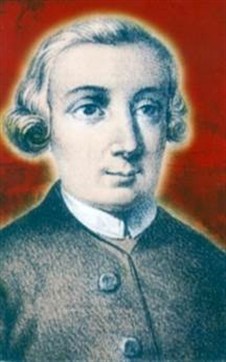Selecchy’s Miserere

MISERERE MEI DEUS, psalm 50
Saverio Selecchy (1708-1788) for Chorus, Orchestra and Organ
Saverio Selecchy (Chieti, 1708-1788), a composer and choirmaster, wrote a large amount of sacred music. The Miserere in G minor (listen), composed in 1767, is certainly the most striking element of the entire Good Friday Procession at Chieti. It is the biblical Psalm 50, traditionally attributed to David. It consists of a composition for three voices for a men’s chorus, which is repeated in all the verses of the psalm. His execution is entrusted to a chorus of 150 singers between tenors, baritones, basses and a string orchestra with 20 violins. These notes have penetrated so deeply in the soul of the faithful of Chieti that every year the Procession of the Dead Christ with the choir and the orchestra parades under the watchful gaze of the crowd and moves in absolute silence. The Miserere accompanies since 1954 the Good Friday procession of Chieti and is the song of pain, the request for God’s mercy to the fragile man, the most moving of the supplications composed by David in exile. In the Psalm, singers beg the forgiveness of sin, confess their guilt and implore the renewing grace by means of purification. It is an example of a genre, the laude, characteristic of medieval central Italy, whose greatest exponent is Jacopone da Todi. Its notes herald from afar the sacred event and as the procession moves through the charming old town, the powerful singing of the choir thrills every heart, turning each year passive spectators into the main actors of the drama.
